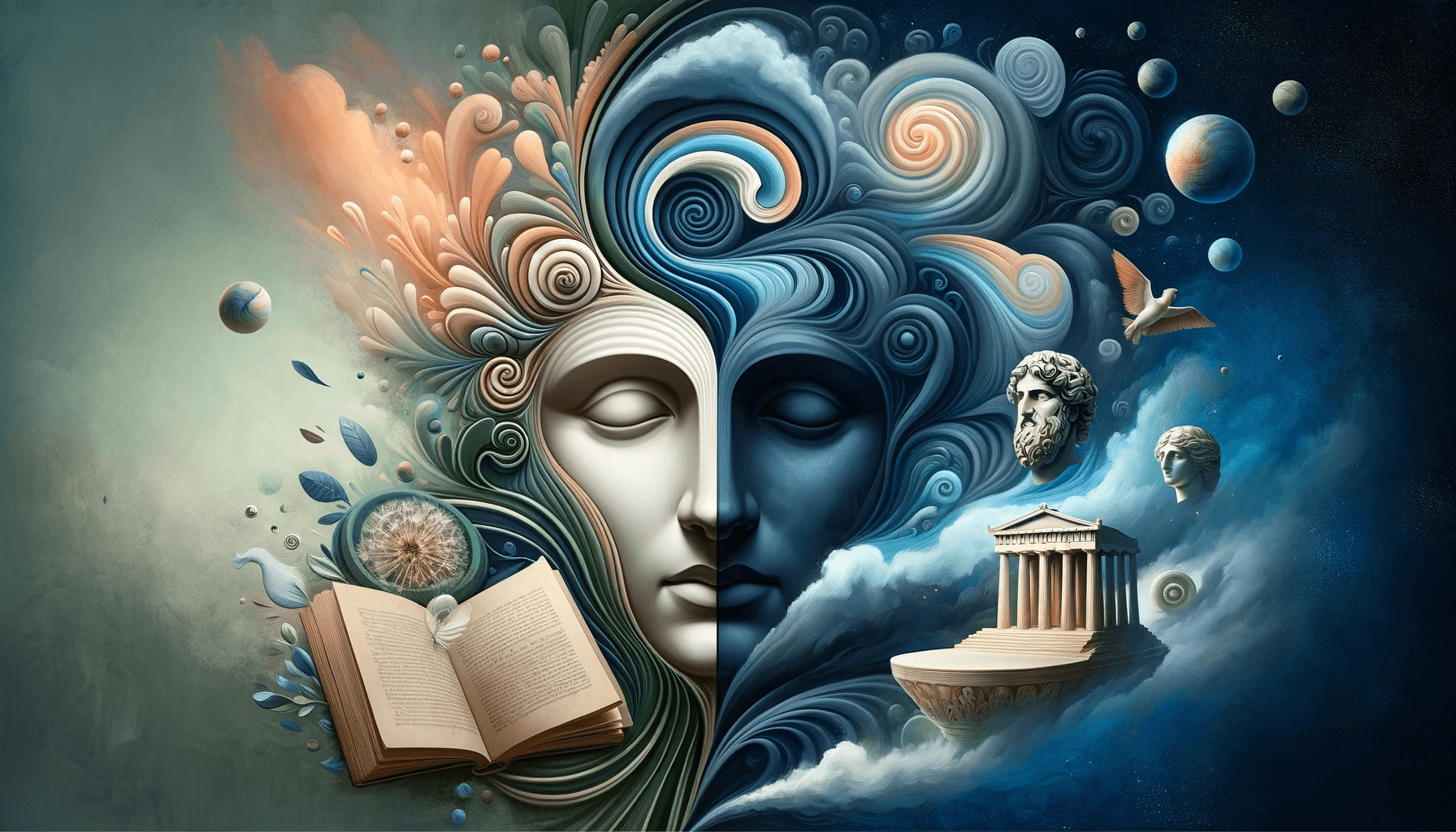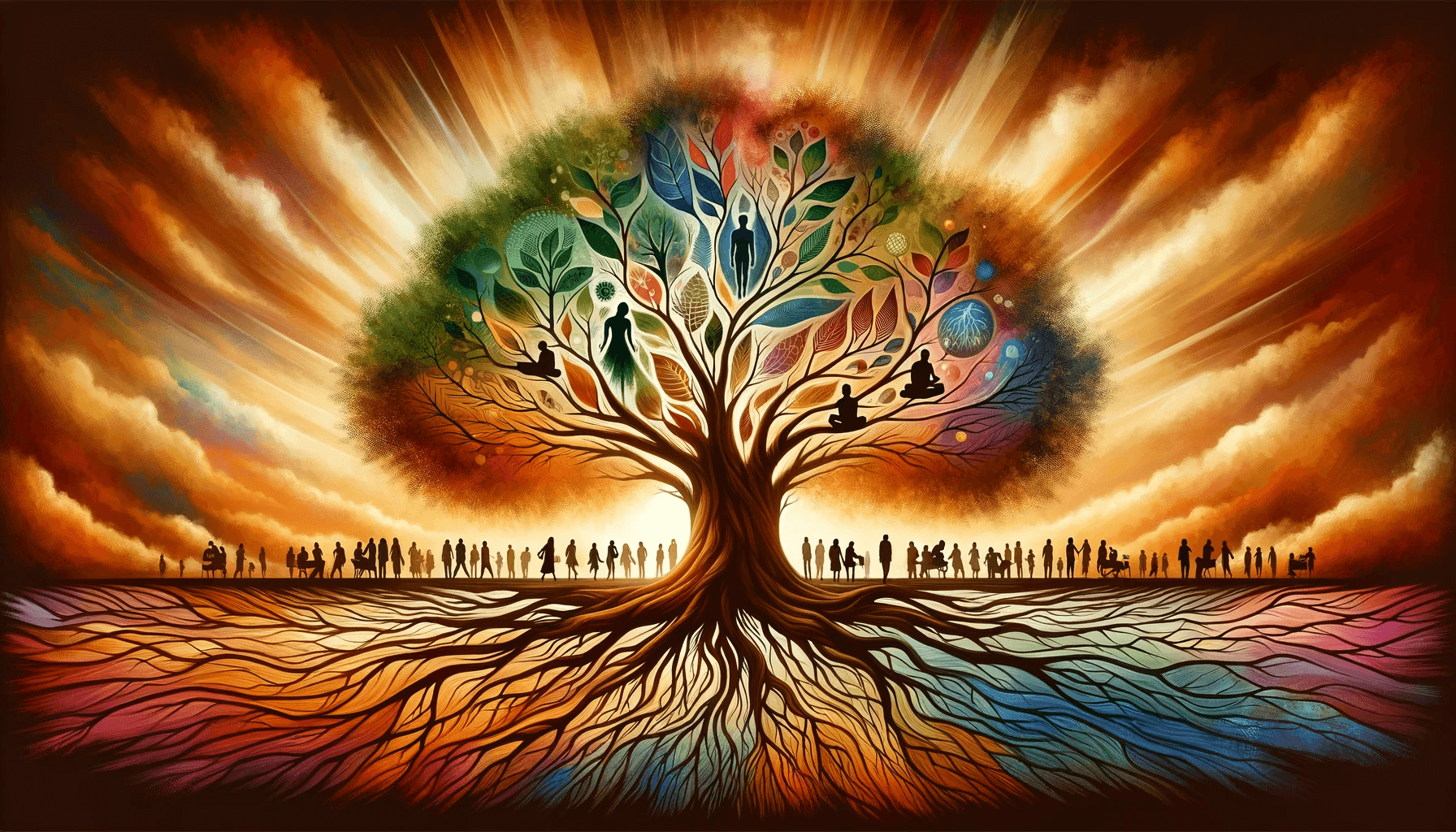Sponsored By Awaken Your Great Self
Table of Contents
The paradox of pleasure: an introduction
Pleasure, a fundamental aspect of the human experience, is often seen as a source of joy and fulfillment. However, it is only sometimes a straightforward concept. The paradox of pleasure arises when we consider the conflicting nature of pleasure and its impact on our overall well-being. This article will delve into the intersection of philosophy and psychology to unravel this paradox and gain a deeper understanding of pleasure’s complexities.
The relationship between philosophy and psychology
Philosophy and psychology are distinct disciplines offering unique perspectives on the human experience. Philosophy explores the fundamental questions of existence, knowledge, and values, while psychology focuses on understanding human behaviour and mental processes. These disciplines often intersect despite their differences, and their collaboration can shed light on complex phenomena such as pleasure.
Theories of pleasure in philosophy
Throughout history, philosophers have proposed various theories to explain the nature of pleasure. Hedonism, for instance, asserts that pleasure is the ultimate goal in life, and maximizing pleasure leads to the greatest happiness. On the other hand, Epicureanism emphasizes the pursuit of long-term, sustainable pleasure through cultivating virtue and avoiding excess. Stoicism takes a different approach, suggesting that true pleasure lies in living according to nature and accepting life’s inevitable ups and downs.
The psychological aspects of pleasure
Psychology offers valuable insights into the psychological mechanisms underlying pleasure. The field of positive psychology, in particular, focuses on understanding the factors that contribute to human flourishing and well-being. Research suggests that biological, cognitive, and social factors influence pleasure. Neurotransmitters such as dopamine play a role in the experience of pleasure, while cognitive processes such as attention and memory shape our perception of pleasurable experiences. Additionally, social interactions and relationships can significantly impact our ability to experience pleasure.
The connection between philosophy and psychology in understanding pleasure
By integrating philosophical and psychological perspectives, we can understand pleasure more comprehensively. Philosophy provides a conceptual framework for exploring the fundamental nature of pleasure, while psychology offers empirical evidence and practical insights into the psychological processes involved. Together, these disciplines can help us navigate pleasure’s paradoxes and complexities and develop a more nuanced understanding of its role in our lives.
Unravelling the paradox of pleasure: examining different perspectives.
We must consider various perspectives and theories to unravel the paradox of pleasure. One approach is to explore the tension between immediate, fleeting pleasures and long-term, lasting satisfaction. While immediate pleasures may bring instant gratification, they can often lead to negative consequences in the long run. On the other hand, pursuing delayed gratification and engaging in activities that align with our values and long-term goals can result in deeper and more meaningful forms of pleasure.
Another perspective involves examining expectations’ role in shaping our pleasure experience. The hedonic treadmill phenomenon suggests that humans naturally adapt to positive experiences, leading to diminishing returns in terms of pleasure. By managing our expectations and cultivating gratitude and mindfulness, we can enhance our ability to derive pleasure from everyday moments and avoid falling into the trap of constant pursuit without genuine fulfillment.
Applying philosophy and psychology to enhance pleasure in everyday life
Integrating philosophy and psychology can provide practical insights and strategies to enhance pleasure in our daily lives. One approach is to cultivate a sense of purpose and meaning. Engaging in activities that align with our values and contribute to a more significant cause can bring a deep understanding of satisfaction and pleasure. Additionally, practicing mindfulness and being fully present in the moment can help us savour and appreciate the simple pleasures that often go unnoticed.
Another aspect to consider is the importance of social connections. Building and nurturing meaningful relationships can significantly improve our well-being and pleasure. Engaging in acts of kindness and compassion can bring joy to others and enhance our sense of pleasure and fulfillment. Furthermore, embracing a growth mindset and being open to new experiences can expand our horizons and expose us to novel sources of happiness.
The role of pleasure in personal well-being and happiness
Pleasure plays a crucial role in personal well-being and happiness. However, it is essential to recognize that satisfaction alone is insufficient for long-term fulfillment. Pursuing pleasure should be balanced with other aspects of well-being, such as meaning, purpose, and personal growth. We can cultivate a more sustainable and fulfilling life by integrating pleasure into a holistic well-being framework.
Challenges and criticisms of the paradox of pleasure
The paradox of pleasure is not without its challenges and criticisms. Some argue that excessive focus on pleasure can lead to hedonistic tendencies and neglect other important aspects of life. Additionally, cultural and individual differences can influence our perception and pursuit of pleasure. What brings joy to one person may necessarily bring another a different level of satisfaction. It is essential to consider these complexities when exploring the paradox of pleasure.
Conclusion: the importance of integrating philosophy and psychology in studying pleasure
In conclusion, the paradox of pleasure offers a fascinating intersection for philosophy and psychology. By integrating these disciplines, we can better understand the complexities surrounding pleasure and its impact on our well-being. Exploring different perspectives, applying practical strategies, and recognizing the limitations of fun can help us navigate the paradox and lead more fulfilling lives. Let us embrace the richness of philosophical and psychological insights to unravel the paradox of pleasure and cultivate a life of true and lasting happiness.
Call to Action: Reflect on your understanding and experience of pleasure. How can you integrate the insights from philosophy and psychology to enhance your daily life and well-being?




